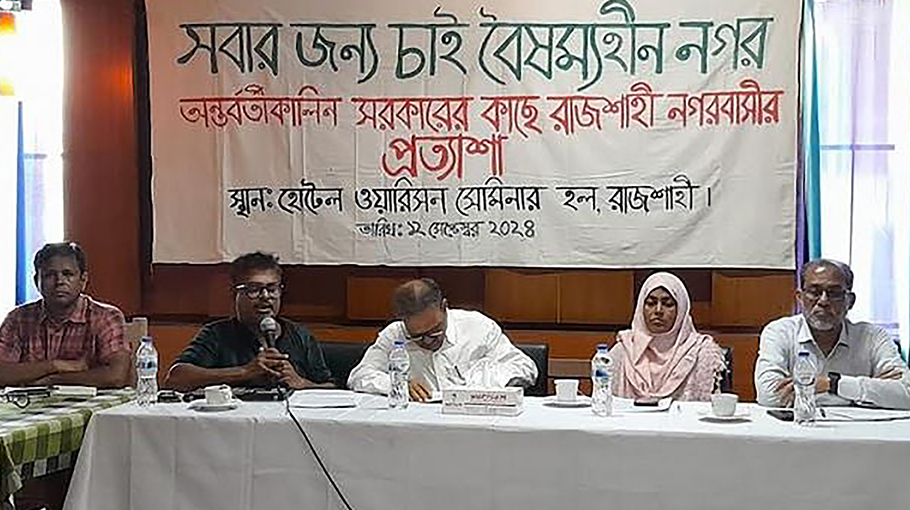Discrimination-free urban life in Rajshahi demanded

Youth leaders and local social watchdogs in a participatory meeting here on Thursday discussed and devised ways and means on how to ensure a discrimination-free urban life.
They unequivocally called for freeing the marginalized, particularly the slum-dwellers, in the city from discrimination in terms of safe habitat, health and education.
As a whole, they viewed that improving living and livelihood conditions of the distressed and underprivileged population side by side with ensuring their peaceful existence is one of the preconditions to overall development of the nation. So, utmost importance should be given on the issue.
Bangladesh Resource Centre for Indigenous Knowledge (BARCIK), a research-based development organization, arranged the meeting at a hotel here.
The meeting was told that around 10,314 families consisting of 39,077 people are living in 104 slums in the city and they have been facing manifold problems.
Executive Director of Northern Electricity Supply Company Engineer Shahid Hossain and its Superintendent Engineer Abdur Rashid, Deputy Managing Director of Rajshahi Water and Sewerage Authority Alla Hafiz and River Researcher Mahbub Siddique addressed the meeting as resource persons.
Taking part in the discussion, BARCIK Director Pavel Partha and its coordinator Jahangir Alam disseminated their expertise on the issue, while its Regional Coordinator Shahidul Islam moderated the discussion.
Some slum-dwelling people, including Matiur Rahman, Zaheda Begum, Mofazzal Hossain and Joyanta Kumar, who took part in the meeting, also shared their views on the issue depicting their grim picture.
The discussants unanimously observed that concerted efforts of all the entities concerned has become crucial for ensuring safe habitat for the slum dwellers as they contribute to the society in many ways.
Ensuring discrimination-free fundamental rights of the urban poor and marginalized people can be the best way of balanced development everywhere in the society.
All the government and non-government organizations concerned should come forward and work together to ensure basic rights, particularly habitat, power, water, health and education, of the underprivileged people.




